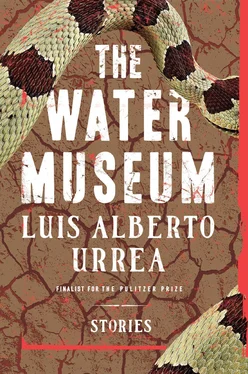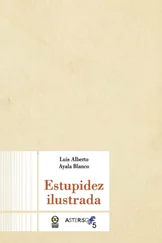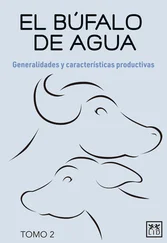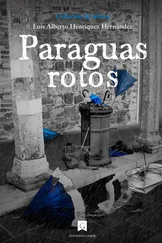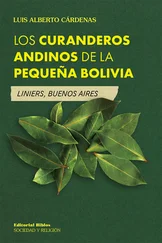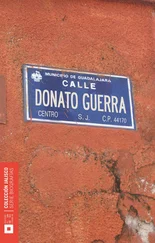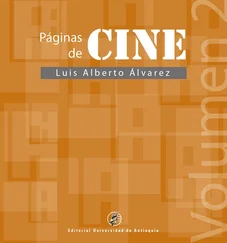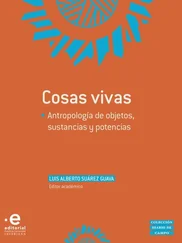She drinks.
* * *
The empty house sits in the silent morning. The yearbook is still on the table, but the coffee cup is in the drainer. Outside, the little bull rakes his horns across the chain-link fence and, after a while, gives up and walks away. Nobody sees him go.
Above Frankie’s house, a slab of numbers wants to fall. Ice has gradually pried it loose from the butte, and it is just a matter of time until it shatters in a storm of rock. Could be today, could be in a hundred years.
Inside the diner, Frankie’s telephone is ringing.
The breakfast club has begun to gather. It’s just The Professor and Ralph and Sally. No sheepherders.
The Professor: “Know what a dinosaur is?”
Ralph: “No, what?”
Professor: “It’s a sore you get from sitting around in a diner all day! Get it?”
Sally: “Did you just make that up?”
Ralph: “Know what a seven-course cowboy breakfast is?”
Professor: “No, what?”
Ralph: “A six-pack and a fistfight.”
Sally: “I wonder where that girl’s at.”
They check their watches.
* * *
Frankie had wanted to go to Bible school for a couple of years and come back to marry Stick and teach Sunday school at Christ the Redeemer. Stick wasn’t into no college — he had his business all lined up, and his folks fronted him the money for a nice little house right outside town, where antelopes moved by like small sailboats in the golden grasses, and a family of foxes had a den in a little cut bank not a quarter mile from the back porch. But Son was going on to State, and he was going to read poems for gosh sakes. Poems. What was he going to do with poems? He drove her crazy sometimes.
“I’m going to live, ” he proclaimed. As if she wasn’t alive. As if he’d be so much more alive than anybody else. It made her mad.
That night, he and Stick stole the paints from the Benson Hill janitor’s room. Two cans of house paint.
They climbed together in the dark. It rained. Everybody remembers that rain, how different it was that rain came in so late in the spring. And they must have made it because the big yellow 77 was there, far above the other numbers. Those boys crawling up the rock in the storm, probably egging each other on. Probably competing. The numbers are so high, no one has ever climbed up there to look, but everyone’s certain one of the sevens says Frankie. And people speculate still on which hand painted it.
Frankie is grateful she wasn’t the one who found them, lying broken at the foot of the butte. It was Stick’s poor father. He covered them with his coat and a tarp from the truck before he staggered out of there, forgetting to drive, hollering for somebody to get the sheriff.
* * *
Little pebbles drop from the Shoshone butte and sound like rain hitting Frankie’s tin roof. At the diner, they press their faces to the glass and peer into the dark, as if she might have somehow snuck past and entered without their noticing. They hear the phone ringing and ringing until it stops.
“I’m starving,” The Professor says.
Miss Sally says, “What if…”
Dirt rolls down the street. It makes small patterns in the wind that almost look like little waves.
Once, when the valley was full of water, dragonflies as big as ravens rattled through ferns and tall spikes of grasses and cattails. Cool fog blanketed the face of the butte — the softest thing the valley had ever known. Sometimes, the last people of New Junction dream of it: fog. It comes to them like a memory they never had. It is the dream of the mountains. The word for fog that none of them know sounds like the pinging of pebbles on Frankie’s roof. If only someone could say it, miracles might happen. The numbers hover in the haze. Peregrines dive. And the Shoshone word for the lost cool fog is pogonip.
The Professor looks up. “She’ll be here,” he says. “Right? Right?”
Ralph is already walking away.
Two. The Southside Raza Image Federation Corps of Discovery
So this was New Year’s Day. This was sunlight. Seventy-eight degrees. This was the sound of the barrio awakening from the party: doves mourning the passing of night, pigeons in the dead palm trees chuckling amid rattling fronds, the mockingbird doing car alarm and church bell iterations in Big Ángel’s olive trees in front of the house. Junior pulled the pillow over his head — it was those kids with their Big Wheels making all that noise.
Somebody knocked on the screen door.
Junior groaned, rolled out of bed. He was in his plaid boxers. Yeah, he was skinny, but he was working out after school every day. Big Ángel wasn’t worth much lately, but he did put cement in two coffee cans and sink a bar in the middle so Junior could curl and get his guns pumped. He flexed in the mirror. Guns! More like derringers.
Bam-bam-bam on the screen door.
“A’ight, güey! I’m coming!”
The living room was covered in sleeping vatos. They were tangled on the couch and on the floor and there were dead forties and vino bottles scattered all over. The TV was still on: ESPN2. Junior shook his head. His big brother, Little Ángel, was snoring. That damned Chango was on the floor. Junior gave him a little kick and shot Chango the bird as he stepped over him.
“I seen that,” Chango warned, though his eyes never opened.
They’d started arriving last night around ten. Poor old Big Ángel’s first New Year’s without Moms in the house. He’d invited them to enjoy the fridge and the eggnog and had gone off to bed.
“Egg knobs?” Chango had said. “What the fuck’s an egg knob?”
This is why Junior did everyone’s homework for them — he was only in tenth grade, but the seniors were doomed without his help. “Dude likes to read!” was the insult they threw at him, and of course he was forced to deny it. He hid his paperbacks under his bed. Still, they relied on Junior’s smarts to pass their classes, so they didn’t beat him up so much. Sometimes, though, Chango and Little Ángel shoved him in a kitchen cabinet and put a broomstick through the handles, leaving him till the old man woke up and let him out.
Junior squinted out onto the porch.
There he stood. Hair all crazy like some kind of hippie. Shadow García.
“There he is,” said Junior.
Shadow shouted Junior’s name, using that fake Beaner accent he enjoyed when he was mocking everybody: “WHO-nyurr!” he bellowed.
Junior scratched his butt.
“Qué?” he said.
“Let’s go to the beach, ese.”
Junior squinted.
“For reals?”
“Why not? You the only one awake, peewee.”
Junior grinned.
“Let me get my flip-flops,” he said.
Shadow lit a smoke and bounced on the balls of his feet.
“Uh-huh, homey. Bring a li’l bucket too, an’ like a blow-up dragon an’ shit,” he said. “Shit!” He cracked himself up.
* * *
The shirts were out of style, but the homeboys still had respect. It was poor old Big Ángel’s thing, that veterano thing, where the old guys thought a lowrider car was the point, a zoot suit maybe, and a fine placa for the back window with a cool logo. They had gothic T-shirts printed, sleeveless, and Junior wore his. Southside Raza Image Federation Y QUE c/s in a double rocker-arch around a drawing of a loco wolf with a bandana around his brow and a gold tooth winking in his mouth. The lobo was saying “Orale!” and holding up a doobie.
“Lots of Chicano historical data in that shirt,” said Shadow as he steered his mom’s station wagon. The radio was where it should be: zeroed in on the oldies station. They didn’t go for that Lady Ca Ca stuff or that pinche gangsta crap.
Junior was slumped back in his seat, riding shotgun. He was burningly aware of the two girlies in the backseat, La Smiley and La Li’l Mousey. They were popping their gum, bored as always, filling the car with perfume. Hair all ratted out.
Читать дальше
